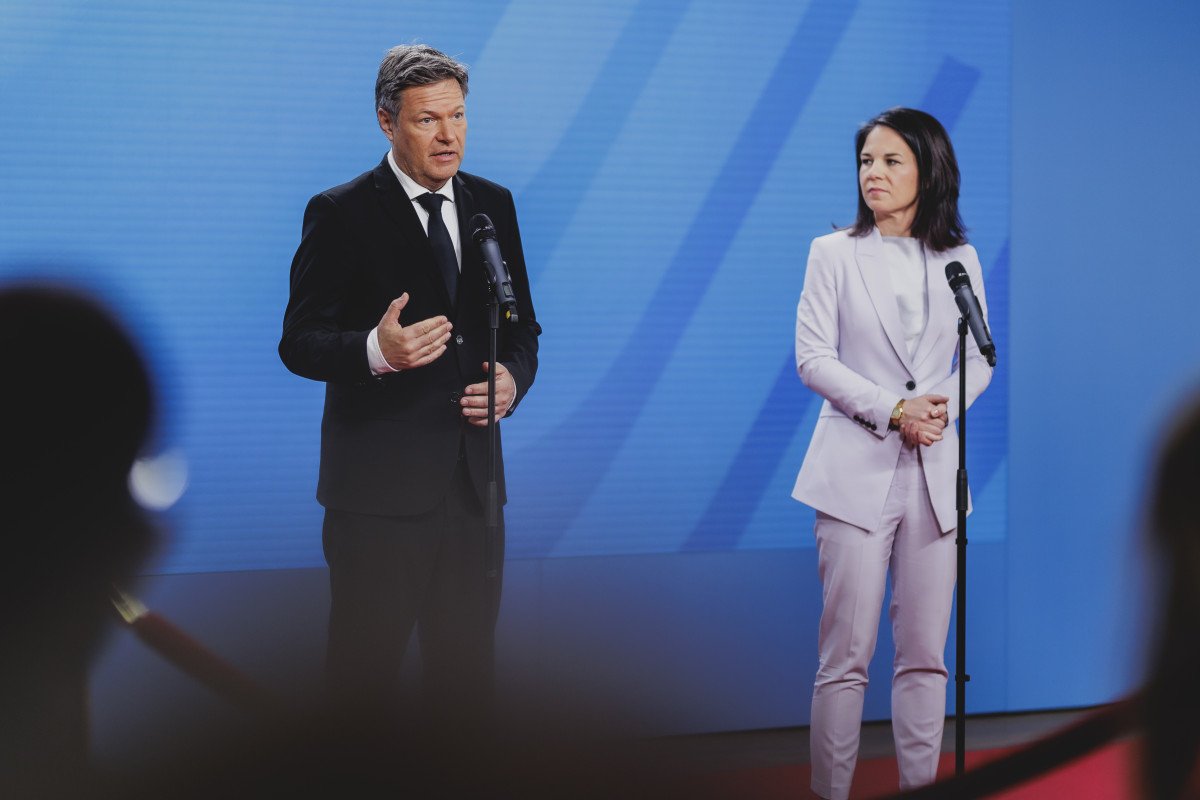Minister Habeck emphasized importance of maintaining momentum, particularly in ensuring adequate renewable power for green hydrogen production and industrial transformation.
Germany’s economy and foreign affairs ministers have emphasized the critical need for greater international cooperation to ensure the world’s energy transition aligns with global climate targets. Speaking at the Berlin Energy Transition Dialogue (BETD), Economy Minister Robert Habeck highlighted Germany’s success in advancing towards its national 2030 climate goals, indicating that with determined planning and execution, international targets could also be achieved.
Germany has made significant strides in expanding its renewable energy capacity, with the proportion of renewables in its electricity system surpassing 50 percent and aiming for 80 percent by the decade’s end.
Minister Habeck emphasized the importance of maintaining momentum, particularly in ensuring adequate renewable power for green hydrogen production and industrial transformation. Despite recent challenges such as supply security concerns and high energy prices, Germany has secured its energy supply and is now able to refocus on long-term energy policy goals.
Foreign Affairs Minister Annalena Baerbock underscored the necessity of bridging the gap between nations with varying financial and technological capabilities to accelerate the transition away from fossil fuels. While some countries have made significant strides in renewable energy adoption, millions in Africa still lack reliable electricity access. Minister Baerbock stressed the urgency of expanding renewable energy sources worldwide, calling for increased international cooperation and mutual assistance.
Jennifer Morgan, the special envoy for climate at the German foreign office, emphasized the importance of sharing best practices and coordinating efforts globally to implement decisions made at climate conferences effectively. Germany stands ready to leverage its experiences and bilateral energy partnerships to support this endeavor.
Simone Peter, head of the German renewable energy industry’s lobby group, outlined the necessary steps for Germany to achieve a fully renewable-based energy system, including updated market designs, improved grid infrastructure, and flexible backup power sources. She called for greater ambition and binding targets to incentivize private sector investments.
Fatih Birol, head of the International Energy Agency (IEA), acknowledged the rapid progress in advanced economies but cautioned against complacency, highlighting the need for accelerated action, particularly in developing nations. While fossil fuel investments are declining, Birol emphasized the urgency of redirecting global energy systems away from fossil fuels to meet climate targets.
The International Renewable Energy Agency (IRENA) presented a report at the conference, indicating the need to triple annual renewable energy expansion to align with COP28 targets. While 2023 saw record growth in renewable technologies, sustained efforts are needed to meet the annual expansion goal of 1,100 GW until 2030.
In light of geopolitical tensions, the ifo Economic Research Institute urged closer energy cooperation within the EU to reduce dependence on fossil fuel exporters and cut emissions. Enhanced integration of European power markets and gas grids, alongside supportive policies and funding mechanisms, are essential to achieving climate objectives.
As the global community grapples with the imperative to transition to renewable energy, concerted international efforts and decisive action are vital to ensure a sustainable future and meet climate targets.
